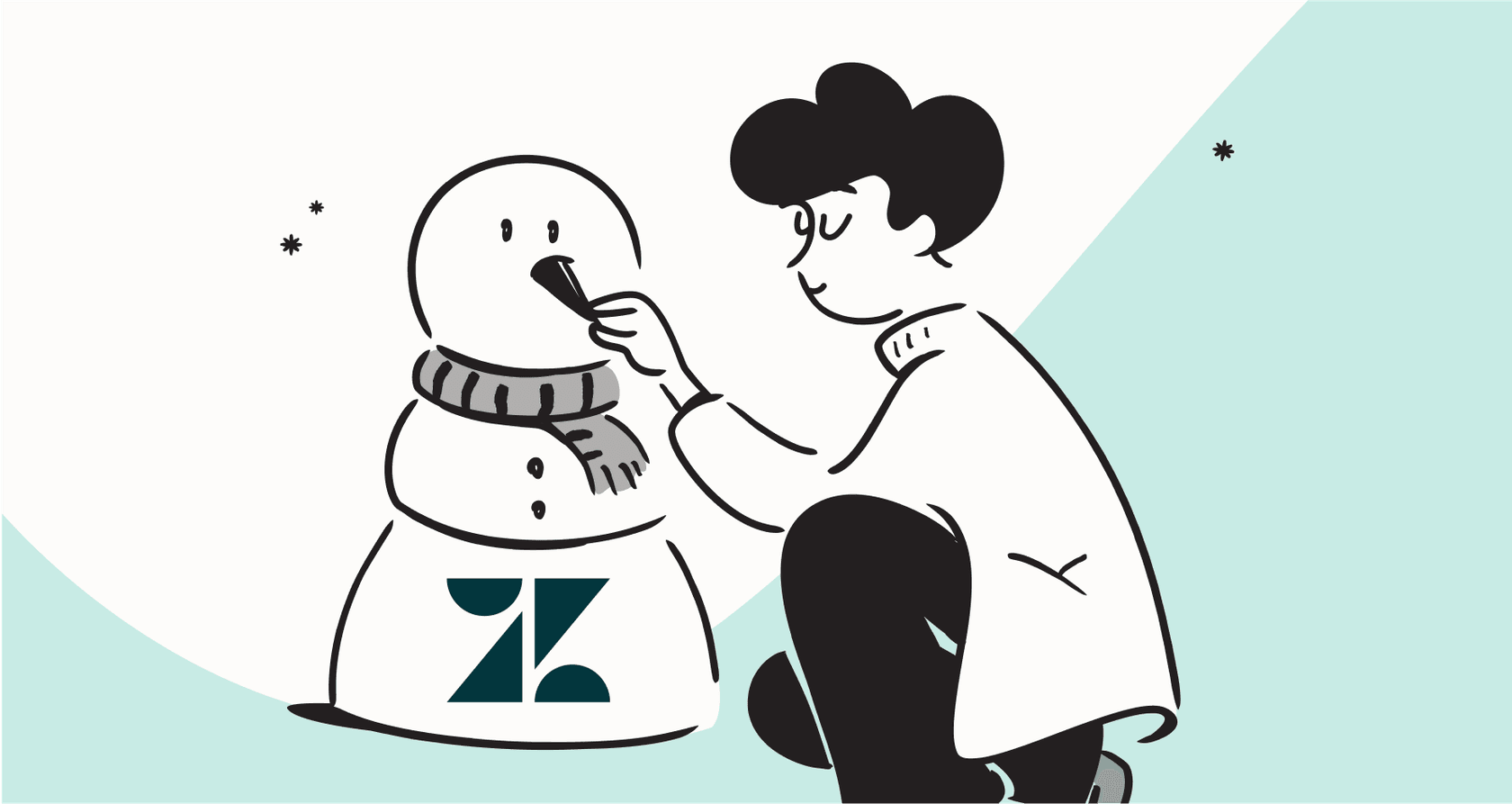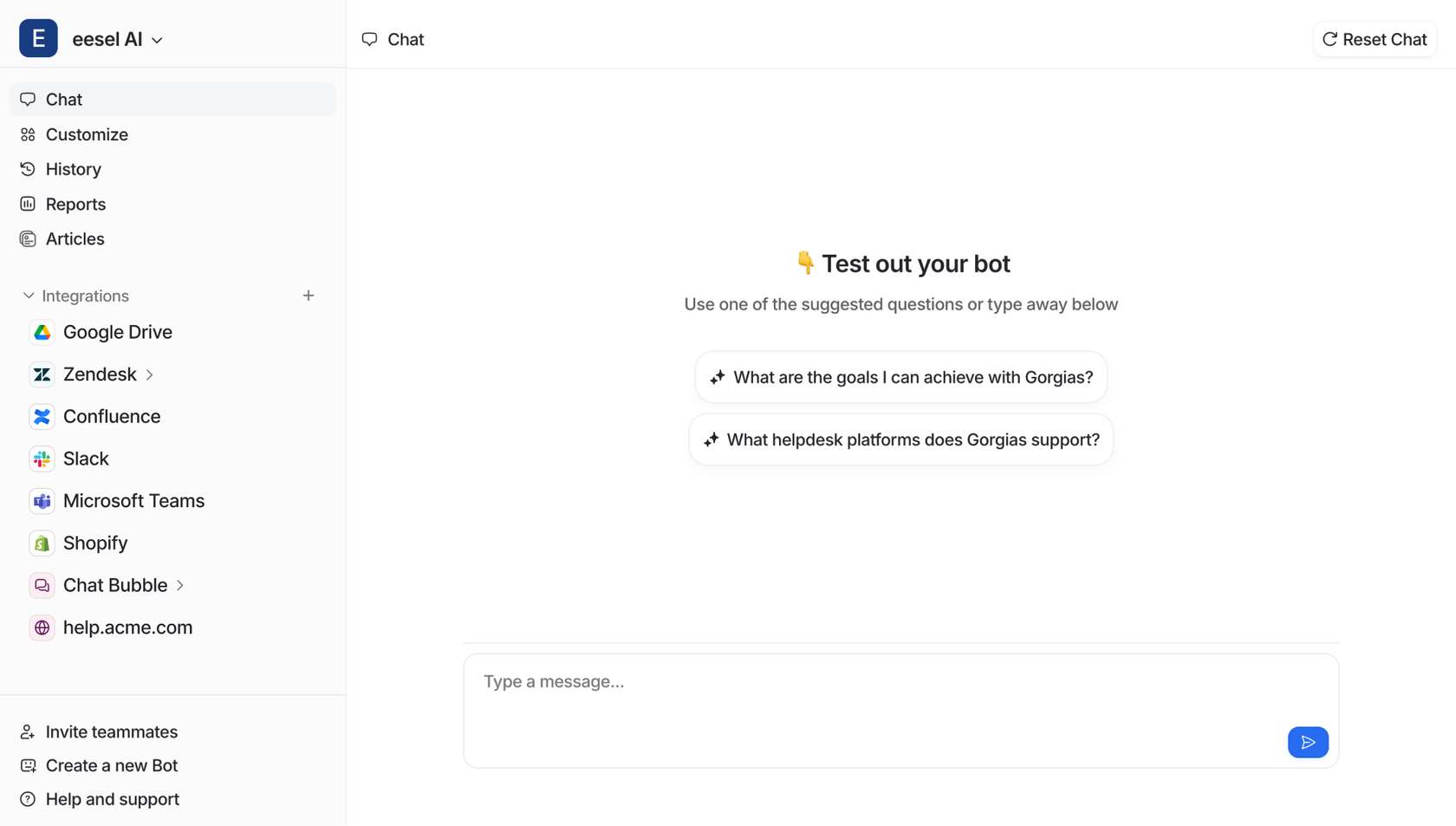HubSpot vs Zendesk: A detailed comparison for 2025

Kenneth Pangan
Last edited September 27, 2025

Picking a new platform for your support team is a huge decision. It’s not just software, it’s a choice that affects your sales, marketing, and service teams. Two of the biggest names you’ll bump into are HubSpot Service Hub and Zendesk for Service. On the surface, they both promise to help you deliver better customer experiences, but they get there in very different ways.
Trying to choose between them can feel like a real headache. You’re not just comparing a list of features; you’re picking a philosophy for how you want to handle your customer relationships. This guide is here to cut through the marketing noise. We’ll give you a straightforward, detailed look at their approaches, features, AI, and pricing to help you make the right call for your business.
What is HubSpot Service Hub?
HubSpot Service Hub isn’t really a standalone tool. It’s one piece of a much larger puzzle that HubSpot calls its "customer platform." Its main selling point is that it’s built right on top of the HubSpot Smart CRM. What that means is every customer interaction, from a support ticket to a sales call or a marketing email they opened a year ago, all lives in one place.
Basically, it’s the go-to option for businesses that are tired of departments not talking to each other. If you want a single source of truth where your whole team is working from the same page, HubSpot is betting you’ll go for its all-in-one setup.
What is Zendesk for Service?
Zendesk has been a heavyweight in the customer service world for a long time, and its platform is laser-focused on one thing: customer experience. It’s a tool built from the ground up to manage the nitty-gritty of customer support, whether you’re a small startup or a giant global company.
Its whole identity is built on being a powerful, scalable, and specialized tool for customer service. Zendesk is what you’d call a "best-of-breed" option. It tries to be the absolute best tool for the specific job of support, with the flexibility to connect with whatever other systems you’re using, like Salesforce for your CRM.
The core dilemma: An all-in-one platform vs a best-of-breed tool
The whole HubSpot vs Zendesk debate really boils down to two different ways of thinking about your company’s software.
HubSpot’s All-in-One Approach: The appeal here is pretty obvious: simplicity. With everything in one system, your support agents can see a customer’s entire history without having to flip between a dozen tabs. There are no data silos to worry about. The potential trade-off? The individual pieces, like Service Hub, might not have the same firepower as a dedicated platform. And let’s be real, moving to HubSpot often means you’re not just changing your support tool; you’re moving your entire sales and marketing teams over, which is a massive undertaking.
Zendesk’s Best-of-Breed Approach: With Zendesk, you’re getting a tool that lives and breathes customer service. It’s loaded with advanced features built to make support teams as efficient as possible. The flip side is that it’s separate from your other tools. You have to rely on integrations to connect it to your CRM. While those connections can be strong, they can also be a pain to manage and don’t always provide the perfectly smooth, real-time view you get with an all-in-one system.
Both have a similar issue: they either ask you to put all your eggs in one one basket or force you to get really good at duct-taping different systems together. But what if you could get smart, automated support without having to replace your existing tools? Modern AI platforms can now plug directly into your helpdesk and other knowledge sources, giving you an upgrade without a painful migration.
A feature-by-feature breakdown
While both platforms cover the basics like ticketing and reporting, the way they handle them shows what they really care about. Let’s get into the details.
Support ticket management
-
HubSpot: The focus here is a unified space where tickets and conversations live together. Its biggest strength is giving agents that full 360-degree customer view right from the CRM. An agent can see past purchases, recent marketing emails, and notes from the sales team, all without leaving the ticket. You can also set up custom ticket pipelines to see your support process visually, kind of like a sales pipeline.
-
Zendesk: Zendesk brings a more mature and heavy-duty ticketing system to the table, built for teams dealing with a high volume of requests. It’s packed with advanced stuff like skills-based routing (sending a ticket to the agent who knows the most about that topic), detailed SLA management to keep track of response times, and highly customizable workspaces for agents. The whole system is engineered for pure support efficiency.
CRM and the single customer view
-
HubSpot: This is where HubSpot shines. The Smart CRM is the heart of the whole platform. All customer data is native, so the context for service agents is seamless and always current. You don’t have to worry about syncing data between your helpdesk and CRM because they’re the same thing.
-
Zendesk: Zendesk does have its own CRM (Zendesk Sell), but it’s far more common for companies to connect Zendesk to a dedicated CRM like Salesforce. The quality of that integration is everything. It can work well, but it’s just not the same as having a single, unified database from the start. Keeping data in sync across two major platforms can be an ongoing headache.
AI and automation capabilities
-
HubSpot (Breeze AI): HubSpot’s AI tools, called Breeze, offer features like AI-powered reply suggestions and conversation summaries. They’re handy for making agents a bit faster. But there’s a big catch: HubSpot’s AI can only learn from data that lives inside HubSpot. If your company’s real knowledge is scattered across Confluence, Google Docs, or internal wikis, the AI can’t see it, which really limits how helpful it can be.
-
Zendesk (AI Agents): Zendesk’s AI is powerful, having been trained on billions of real customer service interactions. It’s great for smart routing, suggesting macros, and powering self-service bots. But it runs into the same walled-garden problem as HubSpot. Its knowledge is mostly stuck inside Zendesk, limited to your help center articles and macros.
This is where the closed-off nature of both platforms becomes a problem. A truly smart AI needs to learn from all of your company’s knowledge, not just what’s in the helpdesk. An AI platform like eesel AI was built to fix this exact issue. It connects to your existing helpdesk but also integrates directly with all your other knowledge sources, Confluence, Google Docs, Notion, and even your past ticket history, to build a complete picture of your business. This allows its AI to give much more accurate and relevant answers. Plus, eesel AI has a powerful simulation mode that lets you test its performance on thousands of your old tickets, so you can see your potential resolution rate before you even switch it on.
The hidden costs: HubSpot vs Zendesk pricing
It’s easy to just look at the sticker price, but the total cost for these platforms can creep up once you add in user minimums, mandatory onboarding fees, and pricey add-ons.
HubSpot Service Hub pricing
HubSpot’s pricing is built around tiers that come with a minimum number of users, which can make it expensive for smaller teams that need access to more advanced features.
-
Free Tools: A decent starting point with basic ticketing and a shared inbox.
-
Starter: Begins at $18 per month (billed annually), but you have to pay for at least 2 users.
-
Professional: Jumps to $450 per month (billed annually) with a minimum of 5 paid users.
-
Enterprise: Starts at $1,200 per month (billed annually) with a 10-user minimum.
It’s also worth knowing that some of the fancier AI features use a "HubSpot Credits" system, which can make your monthly bill a bit unpredictable.
Zendesk for Service pricing
Zendesk uses a more straightforward price-per-agent model, but the costs can add up quickly when you need to buy add-ons for things like advanced AI or workforce management. For more details, check out our Zendesk for Service pricing guide.
-
Suite Team: $55 per agent/month (billed annually).
-
Suite Growth: $89 per agent/month (billed annually).
-
Suite Professional: $115 per agent/month (billed annually).
-
Enterprise Plans: You’ll have to talk to their sales team for custom pricing.
Here’s a quick rundown of the most popular plans:
| Feature | HubSpot Service Hub | Zendesk for Service |
|---|---|---|
| Starting Plan | Starter: $18/mo (2 user min) | Suite Team: $55/agent/mo |
| Mid-Tier Plan | Professional: $450/mo (5 user min) | Suite Professional: $115/agent/mo |
| Core Offering | Unified CRM & Service Platform | Dedicated CX & Support Platform |
| Advanced AI | Add-on / Credit-based | Add-on |
| Best For | Teams already in the HubSpot ecosystem | Teams needing a powerful, dedicated support tool |
This video provides a detailed comparison to help you decide if Zendesk or HubSpot Service Hub is the better fit for your business needs.
The alternative: Upgrading support without replacing your helpdesk
The HubSpot vs Zendesk choice often feels like you have to either sign up for a massive migration project or live with a tech stack that feels clunky. But there’s a third option that lets you sidestep this dilemma.
Platforms like eesel AI offer a more modern approach. Instead of ripping out and replacing your current setup, eesel acts as an intelligent layer that plugs right into the tools you already use.
- Get up and running in minutes: With one-click integrations, you can connect your existing helpdesk (like Zendesk or Freshdesk) and all your knowledge sources. No painful migration needed.
 eesel AI connects seamlessly with your existing helpdesk and knowledge sources like Zendesk, Confluence, and Google Docs.
eesel AI connects seamlessly with your existing helpdesk and knowledge sources like Zendesk, Confluence, and Google Docs.-
Bring all your knowledge together: You can train the AI on everything, your help center, past tickets, and even your internal docs in Confluence or Google Docs, to give it the full context it needs to be genuinely helpful.
-
Test without any risk: Use the simulation mode to see exactly how the AI will perform on your real-world tickets before it ever talks to a single customer.
-
Clear pricing: The plans are simple and predictable, without the confusing tiers, user minimums, or per-resolution fees that can lead to surprise bills.
HubSpot vs Zendesk: Which platform is right for you?
So, after all that, what’s the final call? The right choice really just depends on what your company needs most right now.
Choose HubSpot if: your business is already all-in on the HubSpot ecosystem. If your main goal is to get sales, marketing, and service aligned around one CRM, and you’re okay with a service tool that’s a bit less specialized in exchange for that unity.
Choose Zendesk if: your number one priority is having a top-tier, powerful, and scalable customer support platform. If your support team has complex needs and high ticket volumes, and you don’t mind integrating it with other best-of-breed tools to build out your tech stack.
Consider an AI layer like eesel AI if: you’re happy with your current helpdesk but want to add powerful AI and automation without the cost and chaos of a full platform migration. You want to unlock the knowledge trapped in documents outside your helpdesk and give your support team a true AI partner.
Frequently asked questions
HubSpot takes an "all-in-one" approach, integrating service directly with CRM, sales, and marketing data for a unified customer view. Zendesk is a "best-of-breed" tool, focusing on specialized, powerful customer support features that can integrate with other systems.
Both HubSpot’s Breeze AI and Zendesk’s AI Agents offer intelligent features like reply suggestions and smart routing. However, their learning capabilities are generally confined to data within their respective platforms, limiting their ability to leverage knowledge scattered across other company documents.
HubSpot’s pricing uses tiered plans with minimum user counts, which can become expensive for smaller teams needing advanced features, and some AI functions use a credit system. Zendesk charges per agent, but additional costs can arise from add-ons for advanced AI or workforce management tools.
If your business is already deeply embedded in the HubSpot ecosystem, HubSpot Service Hub is generally the recommended choice. It provides seamless data flow and alignment across your sales, marketing, and service teams through its unified CRM.
For high ticket volumes and complex support requirements, Zendesk for Service is often a stronger fit. It is purpose-built as a powerful, scalable, and dedicated customer support platform, offering advanced features like skills-based routing and detailed SLA management.
No, you don’t necessarily have to choose between HubSpot vs Zendesk for an AI upgrade if you’re content with your existing helpdesk. Solutions like eesel AI can integrate with your current helpdesk and all your knowledge sources to provide powerful AI and automation without a full platform migration.




